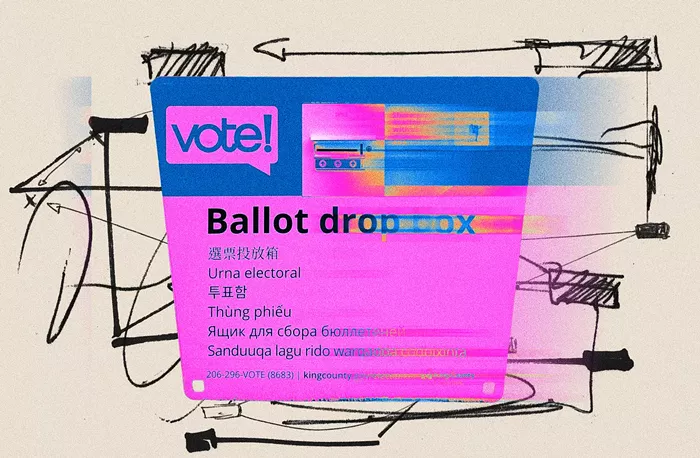This post was originally published on this site
Alright gooners, big news.
For the first time this election, Katie Wilson is up 49.83 percent to Bruce Harrell’s 49.79 percent. Almost everything is counted, with fewer than 10,000 ballots left. This is a tight race.
WHY VOTING IN LOCAL ELECTIONS MATTERS
Katie Wilson is ahead by 91 votes. She needed 54.7 percent of the vote this drop. She got 55.7 percent of it. She’s barely winning. Though these eggs are looking pretty affordable and renter-friendly, don’t count those chickens.
THIS IS EXQUISITE TORTURE
Our on-call experts this cycle provided their wisdom in the minutes after the drop.
Stephen Paolini, who is affiliated with Katie Wilson’s PAC: First, a point of personal privilege. I said what I said. Bruce is fucking cooked … [Wilson’s] lead will only increase. The final margin will be somewhere between a 800-1200 vote lead for Katie … I believe it’s fair to say Katie will be the next mayor of Seattle but we might as well wait one more day to say it officially.”
Michael Fertakis, who worked on Girmay Zahilay’s (officially victorious) campaign: “It’s still too close to call but at this point with the way the votes have been trending every day, Katie Wilson is most likely going to be Seattle’s next mayor.”
Ben Anderstone, who was on Sara Nelson’s campaign: “Still too close to call (because freakish stuff can happen at that margin), but Wilson is definitely favored. She’s won late ballots about 55 percent to 45 percent, and she just has to approach tying the remaining vote. The main reason not to call it: The very last ballots processed are often ballots that need to be reconstructed because the voter filled them out strangely, spilled a sandwich on it, etcetera. Those ballots are oftentimes less left, more representative of the overall vote.”
RECOUNT TRIGGER FINGER
Considering these GLP-1-skinny margins, it’s looking pretty certain that we’ll have some sort of recount. An automatic machine recount will happen if a candidate wins by less than half a percent or less than 2,000 votes. A hand recount will happen if there’s a difference of less than 250 votes and 0.25 percent of the vote total.
According to Halei Watkins at King County Elections, the percentage requirements usually “knocks a race OUT of mandatory recount range,” she wrote in an email. Percentages are stingy like that. Right now, the difference between the two candidates is around 0.4 percent, but it may widen with ensuing ballot drops.
If Wilson’s trajectory holds, “there will be a machine recount but not a hand recount,” Paolini says.
“As far as I can tell there has never been an election result changed by a machine recount, there have been a few times where a hand recount has changed the result,” Paolini says. “But no one reasonably expects an 800 vote difference between recounts. That would be an incredible anomaly.”
We have time until we know definitively whether our next stop is Recount City. No recounts can be triggered until King County Elections finishes its certification process by 4:30 p.m. on Nov. 24. That’s the cut off for when voters can amend signature issues with their ballots. Which is a good reminder: Have you checked your ballot?
However, campaigns can request a recount regardless of one being triggered automatically by the vote count. If they do that, they’ll have to pay. For a machine recount, campaigns must pay a deposit of $0.15 per ballot. It costs a deposit of $0.25 per ballot for a hand recount. That may be an appealing option for campaigns with lots of funds left to spend.
Who will be the mayor? We have some strong hunches. But, we’ll have to wait to be sure. Only time—and those straggler ballots—will tell.
